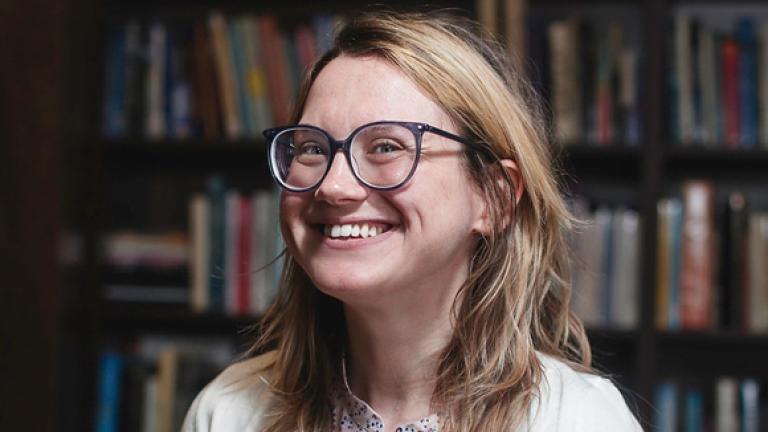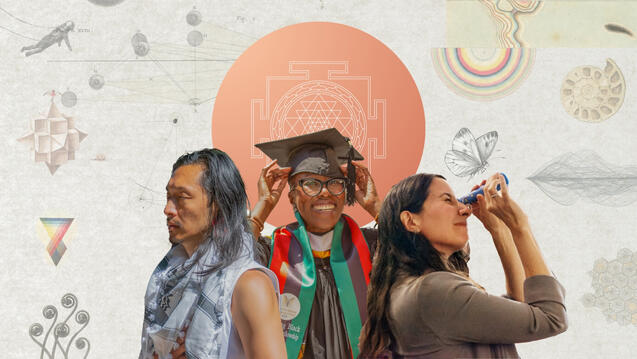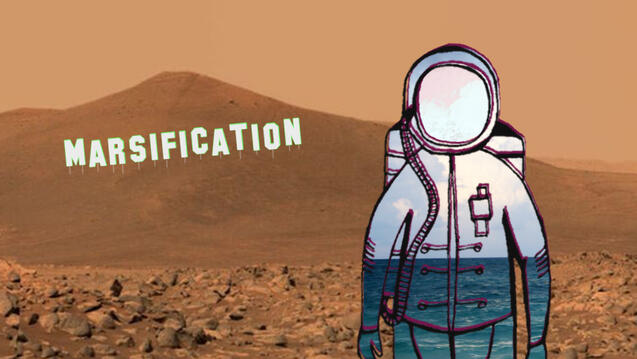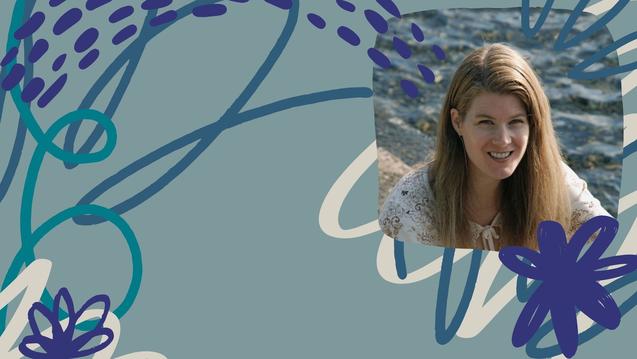At each CIIS Open House event, a community panel of faculty and alumni discusses what drew them to CIIS and their experiences at the University.

Meet Danni Biondini
The newest faculty member of the Community Mental Health program comes with a background in radical health activism
Danni Biondini, MFT, joined CIIS as core faculty of the Community Mental Health program in 2018. We caught up with Danni recently to learn more about her interests in the field and what drives her to do this work.
Can you talk about how your experience at CIIS - as a graduate student and an adjunct professor - has influenced your practice and your goals as a therapist?
I started graduate school, uncertain what it actually meant to be a therapist. I had to learn the basics of how crucial this relationship is, and how crucial relationships are, in general. I discovered how much of our suffering comes from relational or developmental trauma. This is a major interest of mine. I came to see that therapy is less about giving someone tools or advice or book recommendations; rather it is about creating a human relationship where early wounds can be worked through and new possibilities embraced. As the psychoanalyst Annie Rogers put it, "What was wounded in a relationship must be, after all, healed in a relationship."
What classes are you teaching at CIIS?
I teach Child and Adolescent Therapy, Co-Occurring Disorders, and Psychopathology. I've also taught Human Development for the past few years, and it's possibly my favorite course to teach. I love how it evolves every semester based on the discussions and feedback from my students. It's been a wonderful opportunity to develop both as a professor and a clinician. Teaching helps to deepen my understanding of the topics, to critically engage with various perspectives and to constantly widen my scope of knowledge.
How does your background in radical mental health activism influence your practice?
I came to the mental health field to change the mental health field. In college, I began doing radical mental health activism with The Icarus Project. We were working on creating a new culture and language around mental health. Our vision was that our forms of suffering are not well explained by the biomedical model--that mental health issues are not simply due to brain chemistry, but rather that our suffering exists due to complex social factors, like living under capitalism, white supremacy, neoliberalism, and these larger social forces. (It's like the old anti-psychiatrists would say, that maybe mental illness is actually a sane response to living in an insane society.)
I still hold this view, as do many of us at CIIS, but I've learned how to understand it through deeper, more clinical lenses. For example, through Dr. Joy DeGruy's work on post-traumatic slave syndrome, or Gabor Maté on the social roots of addiction (and the impact of social dislocation), or by psychoanalytic theories of intergenerational trauma, or theories that take into account the impact of culture and society on the psyche. And I'm also very interested in how people can heal from their individual, developmental, and historical trauma.
You worked for a number of years as a therapist in San Francisco public schools. What were some of the challenges and rewards
I started out as a school-based therapist in public high school, and I currently work as a mental health consultant in elementary schools. In this role, I intervene at a systems-level, working with teachers and staff to help them understand how kids' "bad behavior" is really a trauma response, and how to make the classroom a safer place for them. I love doing school-based therapy. For one thing, school-based therapy is the best way to work with kids. If you want to work with children or youth, most of them access therapy through their schools. And I got to work with some of the most diverse clients in community mental health. I've worked with kids from over 25 countries/cultures.
The challenge of working in a school is that you have to be creative and flexible with what we call "the frame" in therapy. In private practice, you generally see your client at the same time every week, for a 50-minute session. That's the frame which provides consistency and structure. But in schools, you have to work around the school schedule, and pull kids out of different classes every week, and sometimes they miss a session and you don't know why. It's also difficult to have vacation, where you stop seeing your clients for three months at a time, which can be very disruptive to the therapy, especially for kids who already have disrupted relationships. But school-based therapy and consultation is a place to do creative, meaningful work with kids and to impact the whole system.
You say you're interested in applying a psychodynamic lens to the work therapists do in community settings. Can you explain what that would look like and why you think it's important?
I was so lucky to have Dr. Fernando Castrillón as my professor and mentor when I was a student here. He introduced us to psychoanalysis as a method that is radical in the etymological sense: "To the root." A psychodynamic lens is crucial for understanding the origins of our suffering, how it emerges in a cultural context and in our family relations. In community mental health, I think about the interplay of systems: how our clients are impacted by structural oppression, trauma, poverty, cultural dislocation, and other factors. I think these are very much psychodynamic questions--getting to the root of peoples' suffering. It's a psychodynamic question to ask, "How does the social get into the psyche?"
What books are you currently reading?
So many! I try to read broadly about what it means to be a human, especially as subjects in modern-day USA. Currently, I'm obsessed with Chen Chen's book of poetry, When I Grow Up I Want to Be a List of Further Possibilities. I write little boxes around my favorite lines, like this one: "My job is to trick adults/into knowing they have hearts." I think about that line when I'm consulting with teachers in the elementary school. I'm also reading Esme Weijun Wang's new book, The Collected Schizophrenias, which I'm planning to assign to my Psychopathology class this summer. I just started Yaa Gyasi's Homegoing, after it was recommended to me by two of my students. And anytime I need an emotionally-engaging punch to the gut, I read an essay or two from Hanif Abdurraqib's They Can't Kill Us Until They Kill Us.
Related Academic Program
Master of Arts in Counseling Psychology with a Concentration in Community Mental Health
Related News
Zara Zimbardo and Lily Stone collaborated on the new album Marsification: A tale of planetary grief, featured on Radio 4’s Short Cuts.
New works from CIIS Professor of Clinical Psychology on the Psychological Potency of Dreams



